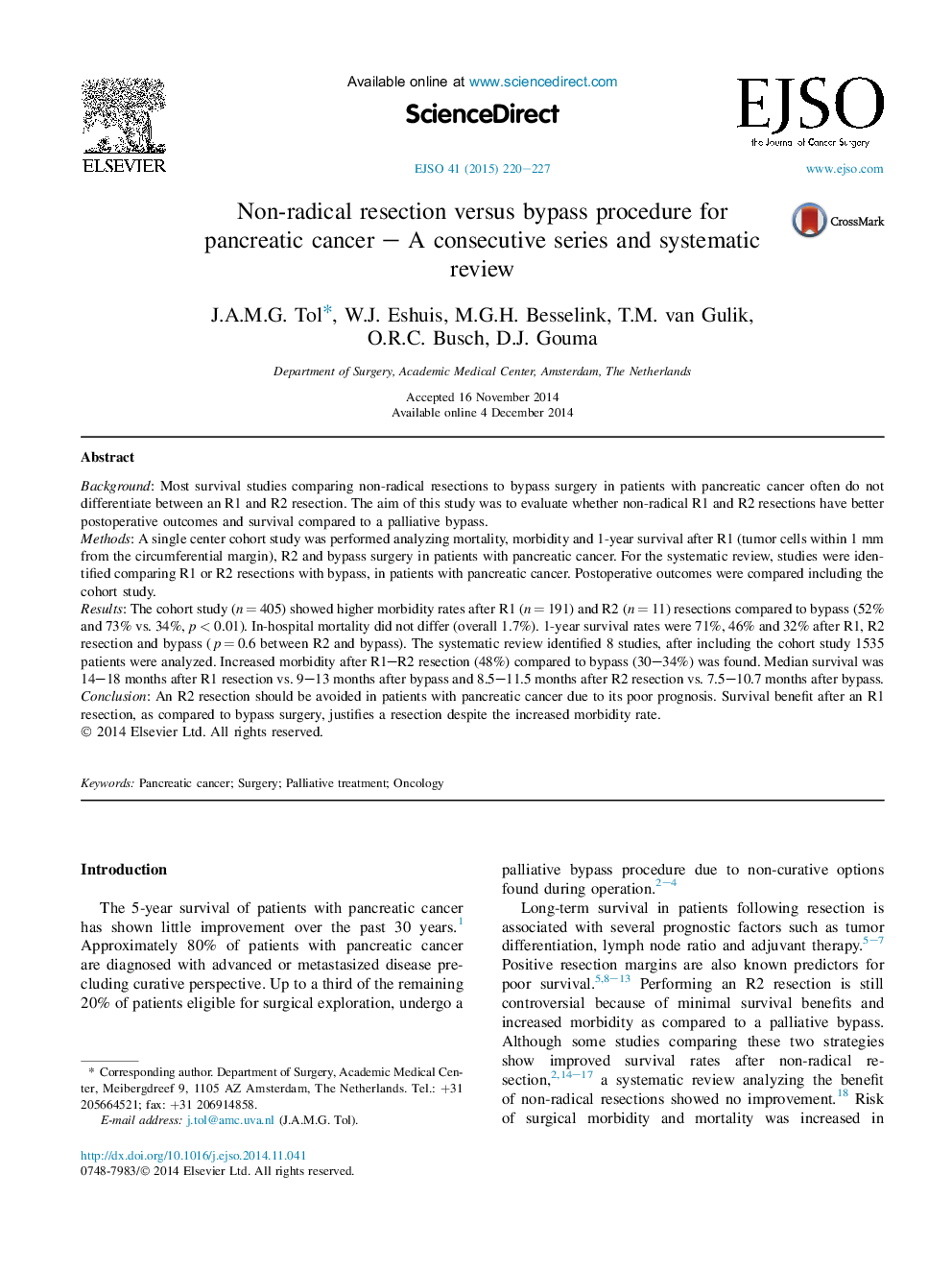| Article ID | Journal | Published Year | Pages | File Type |
|---|---|---|---|---|
| 3984640 | European Journal of Surgical Oncology (EJSO) | 2015 | 8 Pages |
BackgroundMost survival studies comparing non-radical resections to bypass surgery in patients with pancreatic cancer often do not differentiate between an R1 and R2 resection. The aim of this study was to evaluate whether non-radical R1 and R2 resections have better postoperative outcomes and survival compared to a palliative bypass.MethodsA single center cohort study was performed analyzing mortality, morbidity and 1-year survival after R1 (tumor cells within 1 mm from the circumferential margin), R2 and bypass surgery in patients with pancreatic cancer. For the systematic review, studies were identified comparing R1 or R2 resections with bypass, in patients with pancreatic cancer. Postoperative outcomes were compared including the cohort study.ResultsThe cohort study (n = 405) showed higher morbidity rates after R1 (n = 191) and R2 (n = 11) resections compared to bypass (52% and 73% vs. 34%, p < 0.01). In-hospital mortality did not differ (overall 1.7%). 1-year survival rates were 71%, 46% and 32% after R1, R2 resection and bypass (p = 0.6 between R2 and bypass). The systematic review identified 8 studies, after including the cohort study 1535 patients were analyzed. Increased morbidity after R1–R2 resection (48%) compared to bypass (30–34%) was found. Median survival was 14–18 months after R1 resection vs. 9–13 months after bypass and 8.5–11.5 months after R2 resection vs. 7.5–10.7 months after bypass.ConclusionAn R2 resection should be avoided in patients with pancreatic cancer due to its poor prognosis. Survival benefit after an R1 resection, as compared to bypass surgery, justifies a resection despite the increased morbidity rate.
